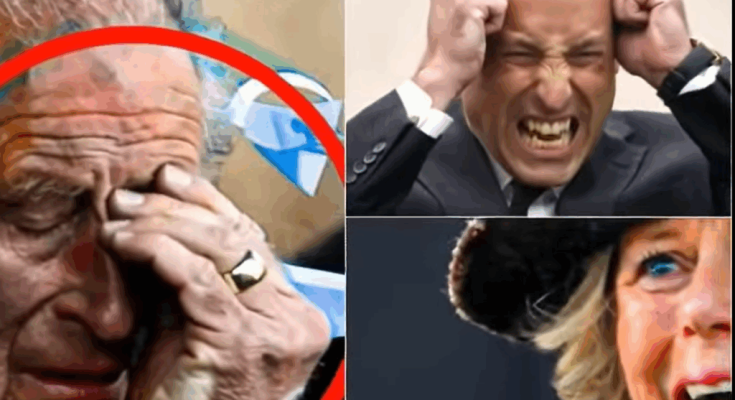King Charles Breaks Down in Tears, Confesses the Truth About Diana’s Death to William
In a rare and deeply emotional moment, King Charles III reportedly broke down in tears as he confessed painful truths to his eldest son, Prince William, regarding the tragic death of Princess Diana — his former wife and William’s beloved mother.
According to sources close to the Royal Family, the conversation took place in private at Sandringham, a royal estate often used by the family for rest and reflection. It was during this quiet setting that King Charles, for the first time in decades, opened up about the sorrow and regret that has haunted him since the devastating car crash that killed Diana in Paris in 1997.

“I’m sorry I couldn’t protect your mother,” the King reportedly said, overcome with emotion. “I was too consumed by royal pressures, and there are things I wish I had done differently.”
At the time of Diana’s death, William was just 15 years old. For years, both he and his younger brother, Prince Harry, have carried unanswered questions and emotional wounds surrounding the tragic loss. Their grief was compounded by the rigid silence and protocol that followed the accident — a response that drew public criticism of the monarchy.
During their recent private conversation, King Charles is said to have admitted to feeling “powerless and full of guilt” over the circumstances that led to Diana being relentlessly pursued by the media, and the emotional toll she endured following their separation and eventual divorce. He also acknowledged that their strained relationship may have left her more vulnerable.
“I can’t change the past,” Charles told his son, holding his hand. “But I need you to know that I never stopped caring for your mother — in my own way.”
The heartfelt exchange has reportedly marked a turning point in the relationship between father and son. For years, tensions have existed between them due to the complicated family dynamics and the long shadow cast by Diana’s untimely death. But this moment of honesty and vulnerability may have helped open the door to healing.
While Buckingham Palace has not officially confirmed the account, royal observers believe this kind of personal reckoning is significant. The British public still mourns the loss of “The People’s Princess,” and King Charles confronting his own role — however indirect — could help rebuild trust with a public that has, at times, been skeptical of the monarchy.
If true, this emotional confession signals a shift in how the Royal Family is confronting its past — not through carefully crafted statements, but through real, human connection.
As King Charles continues his reign under both public and personal pressure, his willingness to revisit painful truths may not only help mend relationships within his own family, but also shape a more compassionate monarchy for the future.
